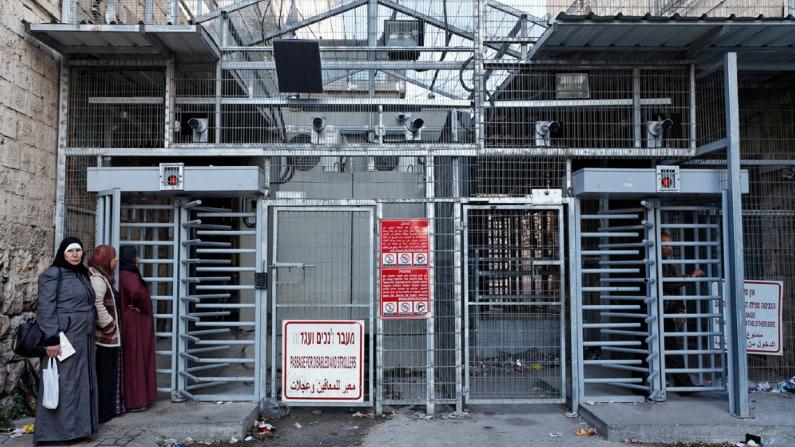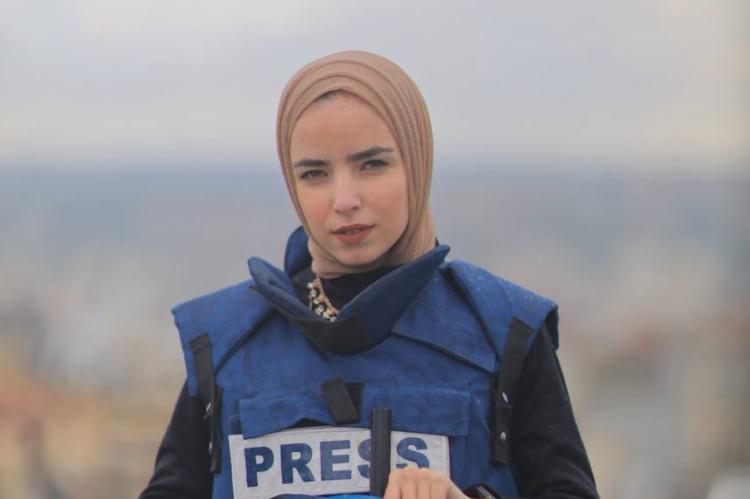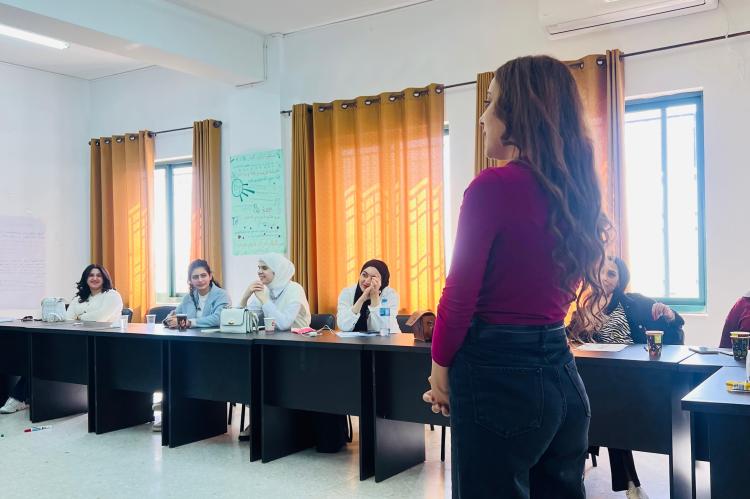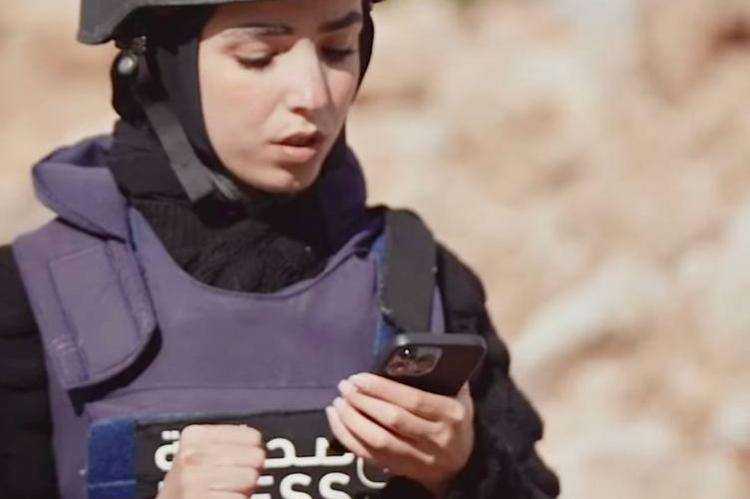
Obstacles for peace work
A peace worker from a Pro Peace partner, who wishes to remain anonymous, expresses deep frustration and anger at being denied access to their workplace in Jerusalem for over 17 months. They say it is impossible to fulfil their professional duties, and that they are denied basic freedom of movement and personal dignity. “It hurts that our work for peace is considered suspicious or dangerous instead of being recognized as indispensable in this deeply divided context.”
Areas such as Jenin, Tulkarem, Nur Shams, and the El Far'a refugee camp in the north of the West Bank are severely affected. According to UNRWA and independent monitoring groups, around 40,000 Palestinians have been forcibly displaced since mid-January 2025 – the largest wave of displacement in the West Bank since 1967 and the largest in the history of UNRWA. These four camps alone were previously home to over 76,000 people, most of whom have now been displaced with no possibility of return. In the city of Tulkarm itself, over 850 people were displaced in just two weeks in March 2025. All of this is happening as part of Israel’s Operation Iron Wall, which began on January 21, 2025. According to the military, the operation is a preventive measure, since the camps are considered strongholds of Islamic Jihad, Hamas, and other armed groups.
The young journalist Ma'ather was affected by the expulsions.
Relations between local organizations working with both communities, individuals, and international NGOs have been severely affected by escalating violence and deteriorating conditions on the ground. Daily realities are hardly noticed in international discourse, and expressions of solidarity are not translated into real action. The more abandoned and isolated local partners feel, the more difficult it becomes to rebuild lost trust in the international community.
What our partners report
Hilda Issa, executive director of the Palestinian Center for Peace and Democracy (PCPD), says: "As a non-governmental organization working for peace and democracy, we are definitely affected by the extreme violence currently prevailing in Gaza and the West Bank. We are facing new challenges, particularly due to the construction of gates between villages and towns and attacks by settlers on Palestinian cars on the main roads of the West Bank."
Ma'ather speaks in front of an audience during a PCPD workshop.
For example, young people were prevented from reaching the PCPD center to attend a training session. The NGO had to change its plans and accommodate the young people overnight and conduct other training sessions via Zoom. “Although we often feel helpless, we continue to work to bring about real change in our communities. This is the only way we can spread values such as peace, democracy, gender equality, and integrity, especially among young women and men whose voices are not heard and who are excluded from decision-making processes.” The feedback from the young people, their desire for change, and the enthusiasm in their eyes encourage the PCPD staff.
“On a personal level, I am saddened by all the challenges facing Palestinians in general and young people in particular,” says Hilda. “But these mixed feelings of sadness, fear, and concern motivate me to devote even more time and energy to empowering young women and men to be agents of change, to work for peace and security, and to build a better future.” Whenever she feels frustrated by the hours of waiting at checkpoints on her way home from work, Hilda reminds herself that society can only become better if people like her continue to work for it.
Frieden spenden
Vielen Dank für Ihre Unterstützung!
The PCPD was founded in 1992 and is based in Ramallah. It advocates for gender equality, youth participation, democratic governance, and human rights. With a strong feminist focus, the PCPD works to empower women and youth in political and public life and to create safe spaces for leadership, advocacy, and peacebuilding.
Peace work is done by civil people
The young journalist Ma'ather is originally from Tulkarm and has been displaced twice in the last six months. She participated in PCPD programs and is now working with Pro Peace and PCPD on a campaign called “They Are the News.” The campaign focuses on displaced women and highlights their voices and needs, which are often unheard in mainstream reporting. Ma'ather not only shot and edited a short film conveying her perspective, but also helped present it to grassroots organizations throughout the West Bank. Radio broadcasts then explored the campaign's themes in greater depth.
Despite the two expulsions she had to endure, Ma'ather still wants to continue working as a journalist.
Ma'ather recounts: “What happened to us was bigger than words can describe. I will never forget January 17, 2024. On that day, the Israeli army stormed our house and held us there for nine hours.” Ma'ather and her family were trapped and did not know what would happen. Every minute felt longer than the last, she says. At that point, they decided to leave their home, “leaving behind the memories, the little details, the corners that held our secrets, our laughter, and our tears.”
Later, they tried to start over in an apartment with the simple hope of picking up where they had left off before fleeing. But on March 12, 2025, an eviction order from the Israeli military came as a surprise. "Months have passed since we were forced to leave our home again. They said they were targeting the refugee camp, but even when we were outside of it, they followed us. They also took over the apartment and turned it into a military post.“ The expulsion became a vicious circle. Ma'ather mourns and suffers, far away from home. The camp has become empty—without people, without life. “The place where we grew up is forbidden and abandoned. But despite all the pain and suffering, we say: Alhamdulillah (Praise be to God). Our Lord has chosen this path for us.” Ma'ather clings to hope, tries to be strong, and continues on despite all the difficult circumstances, finding her way back to freedom with faith and patience. "Maybe I can't change the entire reality, but at least I can raise our voice. I am a journalist—and for me, that's not just a job, it's a responsibility. Every story I report on, every moment I live—in front of or behind the camera—reminds me that I am here for a reason. That helps me to resist in other ways: through writing, through a picture, through a recording, through a cry.“ Despite all the difficulties, she holds on to hope, because only hope keeps her going. ” At the end of each day, I believe that our voice will be heard – and that our right to return is a guiding star that lights our way, no matter how hard they try to extinguish it."


